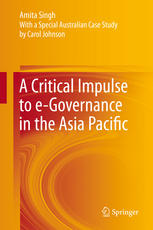

Most ebook files are in PDF format, so you can easily read them using various software such as Foxit Reader or directly on the Google Chrome browser.
Some ebook files are released by publishers in other formats such as .awz, .mobi, .epub, .fb2, etc. You may need to install specific software to read these formats on mobile/PC, such as Calibre.
Please read the tutorial at this link: https://ebookbell.com/faq
We offer FREE conversion to the popular formats you request; however, this may take some time. Therefore, right after payment, please email us, and we will try to provide the service as quickly as possible.
For some exceptional file formats or broken links (if any), please refrain from opening any disputes. Instead, email us first, and we will try to assist within a maximum of 6 hours.
EbookBell Team

4.7
36 reviewsThis book presents a comparative study of the vision, ability and dynamism on the part of governments in selected Asian Pacific countries as they engage in the distribution of e-governance. Consequently, it creates a platform for mutual learning and offers a dispassionate evaluation of mega e-projects. It is an interdisciplinary study of information and communication technology within mainstream social science research and attempts to bridge the gap in empirical research between the nature of technology and the manner in which it is governed. The analysis shows that hegemonic and panoptic structures of surveillance and control may derail efforts to establish sustainable e-governance, while a liberal futuristic framework with open socio-technology networks on Big Data analytics, IPv6 and Cloud Computing may strengthen the trend towards democratizing institutions. Further, the book highlights the extraordinary energy being generated in the emerging new world through their use of the internet and suggests how governments could translate this into a new wealth of economic opportunities, social inclusion and equitable development, in addition to achieving the MDGs (Millenium Development Goals). Lastly, it emphasizes the importance of a visionary approach, which, wherever present, has been able to sustain e-governance by meaningfully linking the micro to the macro and heritage to the horizon.